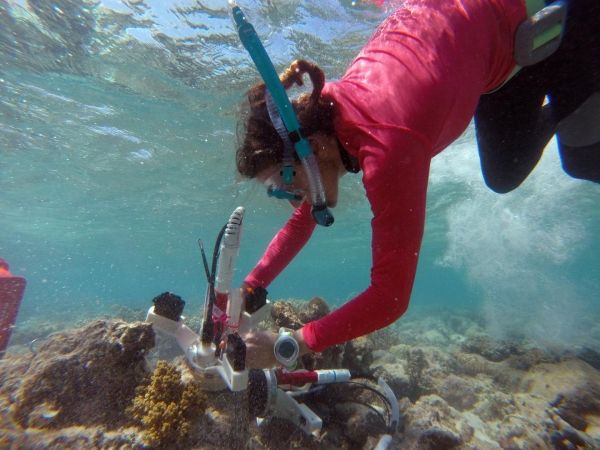Algae colonizing dead coral are upending scientists’ ability to accurately assess the health of a coral reef community, according to new work from a team of marine science experts led by Carnegie’s Manoela Romanó de Orte and Ken Caldeira. Their findings are published in Limnology and Oceanography.
Corals are marine invertebrates that build tiny exoskeletons, which accumulate to form giant coral reefs. Widely appreciated for their beauty, these reefs are havens for biodiversity and crucial for the economies of many coastal communities. But they are endangered by ocean warming, seawater acidification, extreme storms, pollution, and overfishing.
Coral reefs use calcium carbonate to construct their architecture, a process called calcification. For a reef to be healthy, its coral’s building activities must exceed erosion, a natural phenomenon that is exacerbated by all the environmental stresses to which human activity is exposing them.
Read more at: Carnegie Institute for Science
Carnegie's Manoela Romanó de Orte and Ken Caldeira led a research team that deployed a cutting-edge incubator to monitor the metabolic activity of coral and algae in an area of Australia's Great Barrier Reef that had been damaged by tropical cyclones. The CISME, or Coral In Situ Metabolism and Energetics, instrument is a small chamber that can be placed directly on the coral surface and allow scientists to monitor coral growth by measuring changes in seawater chemistry. (Photo Credit: Ken Caldeira)


